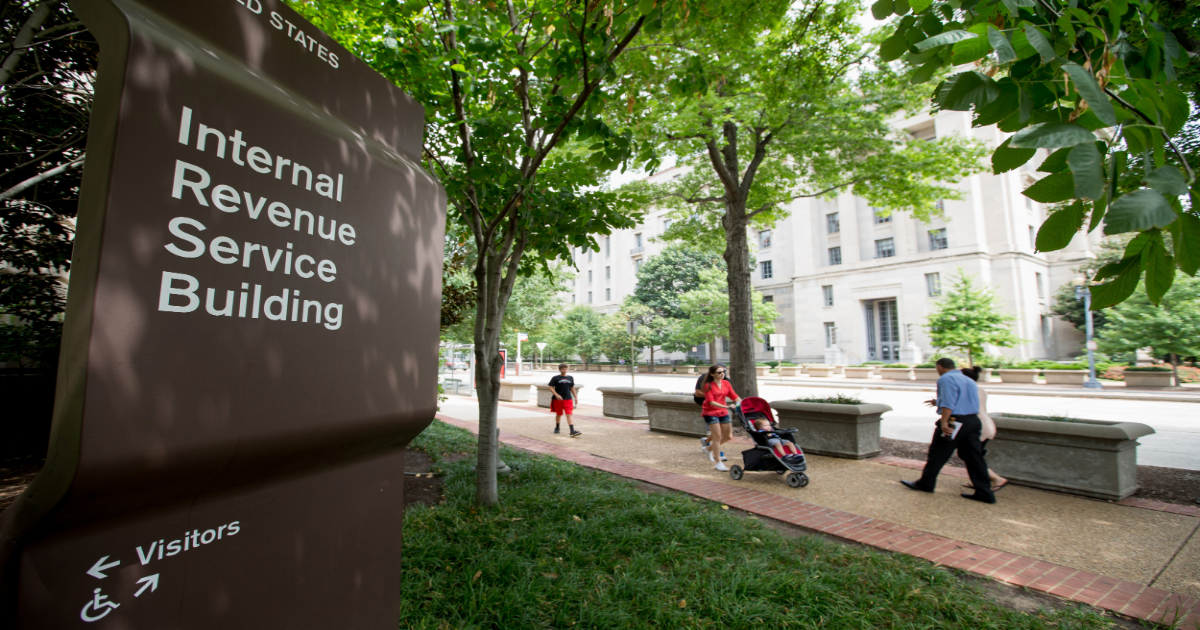The Internal Revenue Service (IRS) is urging more than 1 million Americans to claim $1,400 stimulus checks tied to the 2021 Recovery Rebate Credit (RRC) before the April 15 deadline.
The payment, part of the third round of COVID-19 economic impact checks, is still available to those who didn’t receive the full amount and haven’t yet filed a 2021 tax return.
Why It Matters
The $1,400 payment, authorized in 2021 as part of the American Rescue Plan, was designed to provide relief to Americans affected by the COVID-19 pandemic. While most eligible recipients received their payments automatically, many did not because of filing errors or a lack of awareness about the RRC.
IRS officials have said many people likely missed the payment because of confusion over eligibility rules or because they believed they were not required to file. Some individuals may have relied solely on nontaxable income sources, such as Social Security benefits, and mistakenly assumed they weren’t eligible for stimulus relief.
According to the IRS, a total of around $2.4 billion in payments is estimated to be going out.

File photo: The Internal Revenue Service (IRS) Building in Washington. File photo: The Internal Revenue Service (IRS) Building in Washington. Andrew Harnik/AP
What To Know
The IRS identified around 1 million taxpayers as being eligible for the stimulus check, after reviewing their 2021 tax returns to find the RCC field left blank or $0 claimed incorrectly.
Those taxpayers are now receiving automatic payments, which vary in amount depending on a number of factors with the maximum amount being $1,400, by mail or direct deposit.
According to the IRS, affected taxpayers will also receive a separate letter explaining the payment.
However, those who never filed a 2021 return are still at risk of missing out on the $1,400 payment, and must file their 2021 tax return by before April 15 to claim the credit. Free filing options are available to some taxpayers through the IRS website.
The IRS has emphasized that the credit can be claimed even if a person had little or no income in 2021, which makes it especially important for low-income individuals or those who do not typically file tax returns.
To be eligible, the taxpayer must have a valid Social Security number and must not have been claimed as a dependent on someone else’s return.
Taxpayers who file a 2021 return may also be eligible for other pandemic-era benefits, including the Child Tax Credit and the Earned Income Tax Credit, depending on their circumstances. Claiming all the credits together could lead to a significantly larger refund.
The IRS is also offering help through Taxpayer Assistance Centers, especially for people who need help filing their 2021 returns or verifying their eligibility. Locations and appointments can be scheduled through the IRS’s contact page.
What People Are Saying
IRS Commissioner Danny Werfel said in December: “The IRS continues to work hard to make improvements and help taxpayers. These payments are an example of our commitment to go the extra mile for taxpayers. Looking at our internal data, we realized that one million taxpayers overlooked claiming this complex credit when they were actually eligible.”
Alex Beene, a financial literacy instructor for the University of Tennessee at Martin, previously told Newsweek: “While many Americans may be scratching their heads over stimulus checks being distributed in 2025, this is actually a very select group of taxpayers who were eligible for the pandemic-era payments in 2021 but failed to claim them. This goes back to mistakes in filing to the IRS that left around one million Americans without a $1,400 check four years ago that should have received one. Obviously, when it comes to ‘free money’ from the government, it’s a boost to their respective bottom lines. At the same point, for those who have been struggling with higher prices over the post-pandemic years, the payment may feel ‘too little, too late.'”
Lisa Perkins, a clinical professor and director at UConn Law Tax Clinic, Connecticut, told Newsweek: “Now that we are back in a COVID-type period, where tariffs loom and prices for essentials like food and personal care are soaring, an extra $1400 can make an enormous difference, particularly for individuals and families who are already food insecure.”
Kevin Thompson, a finance expert and the founder and CEO of 9i Capital Group, told Newsweek: “For those receiving the rebates, it’s a welcome financial boost, but it won’t move the needle on inflation. Most of this money has technically already been spent or accounted for. In many cases, it’s being used to pay down debt, which is climbing, especially among lower- to middle-income households. So the impact is personal and positive, but not economywide.”
What Happens Next
The April 15 deadline marks the final opportunity to receive the stimulus under the RRC provision. After that date, any remaining unclaimed payments will be forfeited.
Update, 04/01/25, 11:46 a.m. ET: This article has been updated with comment from Kevin Thompson.
